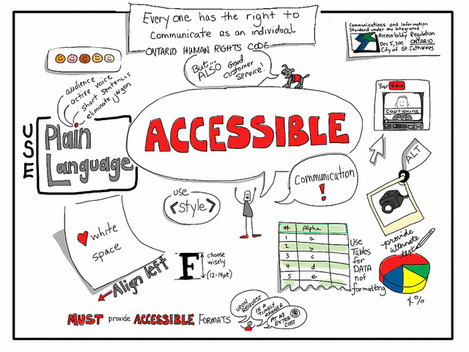0 Comments
In recent days I've had a number of in-depth conversations with atheists and agnostics ... it's been great, and depressing. And central to the discussions has been what defines value. If we define it ourselves, then ultimately there is no real value (but more on that another time).
A thought that grew from these conversations ... We are relational. I think whatever one's belief you would agree. We are created (or evolved, if you prefer) as relational beings, we crave interaction. Our lives centre around relationships, and someones loneliness is the worlds greatest disease. Popular people and shy introverts alike, we all live for the briefest of touches from true relationship. Now granted, some use relationships for power, for abuse, for ego, some for self-affirmation, some for cruelty. But we all revolve around relationship, and we all yearn for it. Last week, late on a cold winters* evening, satiated with food and sipping a glass of red wine in the dim light of a roaring fire -- that moment when we feel secure and risk opening ourselves to others -- an atheist said to me that he wished God were true so that he could know him. Why oh why, in an age of hooking up, of jumping from bed to bed, changing relationships like clothes, immersed in self-centered preservation, do we struggle to accept relationship with God? From secular therapists to church counselors, we chase whatever it takes to be "personally whole" in trying to deal with the fractured, shallow, and tenuous relationships where we've substituted facebook, twitter, and virtual reality for the embrace of an invested person. (And please ... I'm not denying the incredible value and importance of personal healing). But doesn't relationship begin by ignoring yourself, and investing in someone else. Try that thought again: true relationship ... what we are made for ... our inherent nature ... begins, grows, and thrives when we value someone else before ourselves. Ultimate relationship is when we realize the immensity of God's worth compared to us, and invest in him. Hmmm ... so if I am relational, and if to be whole is to be what I am made to be, then to be whole has to include investing in others. This seems to be the opposite of just about everything the (western) world wants us to do. And all the time God says "I am the ultimate relationship, why not try me?". * For those in the northern hemisphere, may I remind you that here in the southern hemisphere it is winter (July)  http://tinyurl.com/o68h27g http://tinyurl.com/o68h27g An 8 year old who was forced to shoot her father. A drug gang taking over a house to sell their drugs. A girl rescued by a man who killed her parents. In the last few days I've listened to the pieces of lives told through stories like these. It's almost too hard to ... tell my story ... find healing ... to forgive ... or move on. 1. We all know the Rwanda genocide that took place, but it's only when it is reduced to an individual's story that the immensity really strikes home. Last night I listened to the story of how, as a young child of 8, she was abducted by the rebel army along with all other children in her village. She was singled out and taken back to the village, and forced to kill her own father. Why? Because killing a loved one would supposedly make her into a strong fighter. Years later she saw across the street the man who made her do that; he is walking free on the streets as the nation struggles to reconcile. 2. Someone close to me is involved with people from the city squatter camps, and tells me of a struggling family living in a shack and barely making ends meet. A local drug gang take over their house for the night to keep moving their dealership and prevent being caught. In fear the family leave for the night, but when they return in the morning everything they own, which was not much to begin with, has been taken. They are back to square one - nothing. Everyone has an equally real story. Some find it hard to talk about and are in need of a space/place to do so (like postsecret.com), some are very open with their lives, while many oscillate between the two. Our stories differ only in degree, but each is no less important to the person at the center. Some seem extreme, other's apparently trivial, but telling our stories is the beginning of relationship. My own story has little in the way of extreme violence, but includes personal events of near death, relational failures, and a shared guilt of growing up passive in an apartheid regime. Some would say I am blessed by comparison to others, but we each still have to deal with what we've received and given. How does one forgive? How is one forgiven? How ... when retribution seems the logical, rational, and satisfying response? When the victim should be allowed to exact revenge, when we want the perpetrator to rot in hell! (And: what do you do when you're both the victim and perpetrator ... hurting yourself in senseless anger?) And how does one handle the collateral damage through the unwitting involvement of others, or the consequences that hurt across generations? I suggest it starts with speaking, ends with hearing, and has forgiveness standing in between. Easy to say, really tough to do. Last night with the Rwanda people the statement was made "I'm fearful until I begin to speak". Its true: while we hold it inside it eats us up. To speak is an act of the will and takes courage, but lets hurt leak out, and then there's less left behind inside. And then, to hear! That is a real gift. To hear means to acknowledge, to empathize, because in hearing we pick up some of the other's burden and lighten their load. We have so few who know how to hear. Platitudes and sympathies abound, nice sounding words. But really hearing? Hardest of all, standing in between speaking and hearing, is forgiveness. Forgiveness is the one human characteristic that is so strongly admired and yet so seldom practiced, because it's (almost) too hard. It is clear that forgiveness brings healing. It is clear that the other person's response is not central to the outcome, because its me that needs to forgive others for my sake, not theirs, else my anger destroys me. And I need to be forgiven by others so I can be restored. Giving forgiveness in speaking, accepting forgiveness in hearing. And that's what is too hard ... almost. Yes, the stories are tragic, and the damaged lives make me feel helpless. But to forgive is to negate the other persons hold on me. As long as I continue to harbor unforgiveness, I am letting someone else have power over me. While someone has power over me, I am too weak to help those in need. Many Rwandans have found the courage to forgive and escape their extreme experiences. Many in my country have done so to move beyond racial divides. And like everyone I too find forgiveness hard, but am freed every time I can. So I need to talk. Talk to God, talk to others, talk to those I hurt, talk to those who hurt me. I need the courage to forgive so I can find release. Easy to say, really tough to do. (And what about receiving forgiveness ... that's about as hard, and deserves it's own blog post.)  (http://tinyurl.com/q7n4ocg) "I find gregarious pedantism unnecessary in the utilization of Socartic didacticism." "Well, I find your vocabularious way of speaking irritating." I must admit to a weakness for the habit of Sesquipedalianism. It feels so satisfying to be able to compact a richness of meaning into one word, but go too far and you come out the other side in the land of sesquipedalianism. Institutional religion, be it Chirstianity, Hindu, Atheist (which in my book is a religion because it takes as much faith as any other), or any other faith, is beset with the problem of sesquipedalianism. It encourages an inbred isolationist culture of insiders against the mass (pun intended) of the ignorant. The jargon of religious insider trading stratifies the church culture and reinforces an unspoken oligarchy within the supposed religious equality. See! I've just been caught by sesquipedalianism. Instead, contrast that with words that have real packed meaning. Take for example the Afrikaans word "Sterkte". It packs a hug, encouragement, good wishes, prayer, empathy, and support all into one little word. If you know the language and you meet a fellow traveler suffering with troubles, "Sterkte" is the voice of support. In English all one has to say is "good luck" ... how pathetic is that! And what about Greek? Four words for love - how cool is that. In English all I can say is "I love you", "I love ice cream", "I love my brother", or "I love God". Sigh. So why can't Christians learn to communicate in words like "Sterkte"? Well, all we really need to do is tell our story, the grand universal story that is unique in every one of our lives. Its the story of how I was at the brink of destruction and finally escaped the inward spiral to start on the real journey: to become what I was made to be. Some are still in the spiral, some are in shock because they've suddenly seen the chasm, some are struggling to climb out the hole, some are taking a breather as they gaze at the future, and some are stepping over the border into a new land. It's a real "trek" (another one of those words loaded with meaning), but if we share our story, we are strengthened.
Are you interested in why people, especially the youth, are avoiding Church? Would you like to see people really engage with God? Then definitely watch this: a Youth Work Summit (YWS) talk by Ruth McGarahan. (10 minutes). If you want to dig more, try these resources:
 Recently I shared a submarine with a Nepalese. Actually he grew up in Nepal and now lives in Australia. We shared a submarine in Korea. So it was a South African with a Nepalese from Australia underwater in a submarine off the coast of Korea. The experience was a microcosm of life ... all puns intended. There we sat in our safe shell of steel and glass looking at the foreign world outside. Odd fish, weird structures, and distorted landscapes drifted by as we floated along. We were warm, dry, and safe. But my new Nepalese friend and I also had our own invisible submarines ... the bubbles of our different cultures, experiences, values, and desires. And in our short time together we were immersed in the oddities of each other's world. Yet all the time we remained in the security of our personal submarines, peering, as it were, at each other through our portholes. And then we surfaced, literally and figuratively, and each went back into the familiarities of our known environments. Christians are like this. We arrive at church in our submarines, hatches firmly locked down as we navigate around the peculiarities of institutionalized religion, observing the odd landscapes of each other, and communicating in a language distorted by our unrealized enclosures. If you are in a submarine and you open the hatch underwater, a lot of things happen. You get wet for one. Also, the pressure increases dramatically, fear is a reality and personal safety becomes paramount. Your options are suddenly limited, choices are few, and it's a battle to survive. Yet, opening the hatch is the ONLY way to really know the environment outside. Imagine the immensity of Jesus's submarine experience. Coming from heaven to earth, he opened the hatch and swam outside. Perhaps we should do the same. |
Important: The views expressed on this blog do not necessarily reflect the official position of our church
Like to Write? Archives
June 2015
|


 RSS Feed
RSS Feed

